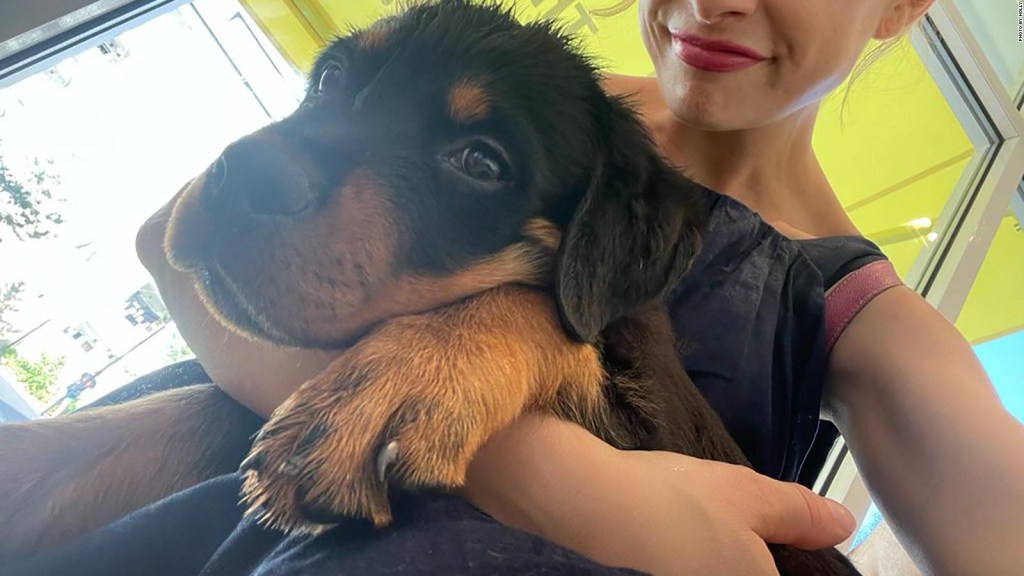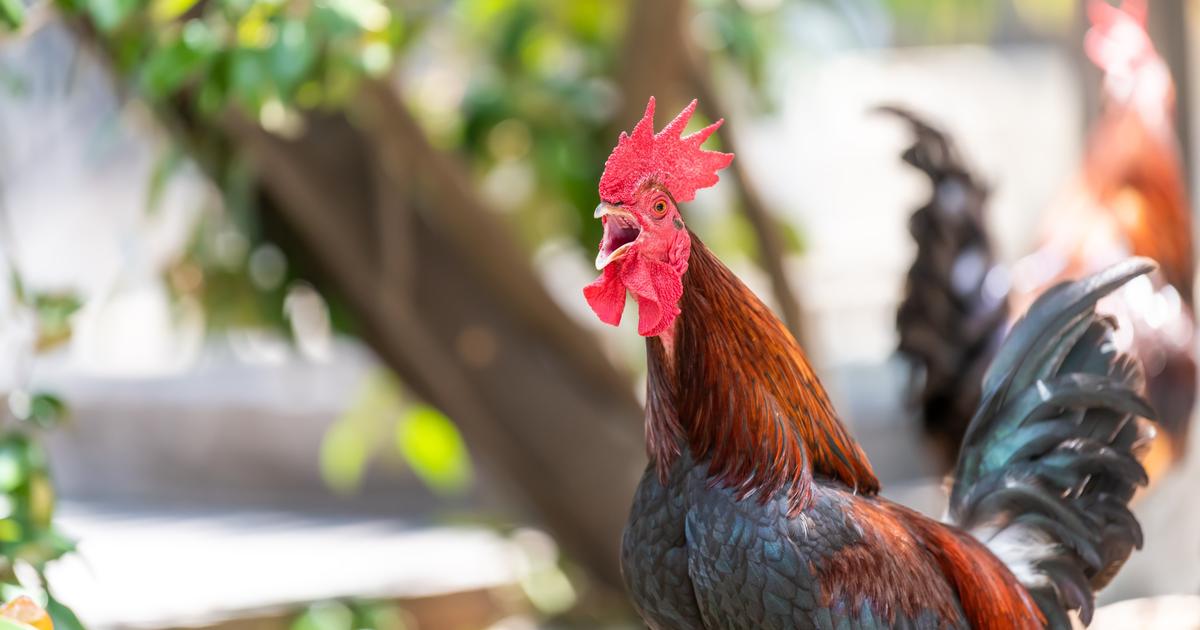How to protect your pets in the heat wave?
0:55
Editor's note:
Holly Thomas is a writer and editor based in London.
She is a morning editor at Katie Couric Media.
Her Twitter is @HolstaT.
The opinions expressed in this article are solely those of the author.
See more opinions on CNN.
(CNN) --
Trends tell stories.
Last year, the American Society for the Prevention of Cruelty to Animals (ASPCA) reported that one in five American households had acquired a new pet since the start of the covid-19 pandemic in 2020, a change that has also been reflected in the UK, where I live.
Although animal charities feared that people would give up their new pets when the reality of ownership dawns, as of May 2021, the vast majority of American pets - 90% of dogs and 85% of the cats, according to the ASCPA, were still in those homes.
Pet adoption increased at the start of the pandemic, what happens now?
As often happens, the crisis was followed by another, and once again our pets have become an indicator of the prevailing emergency, which in 2022 is economic.
As the cost of living skyrockets in the UK, owners are increasingly unable to afford to keep their pets.
The Dogs Trust says inquiries about relinquishing dogs are at an all-time high, and the Royal Society for the Prevention of Cruelty to Animals has warned that shelters are "choking".
In the United States, the ASPCA notes that some shelters are seeing an increase in admissions and a drop in adoptions this year, while the Bureau of Labor Statistics says the cost of pets and pet products increased by 8, 3% between May 2021 and May 2022. At the grim intersection of both trends, reports of dog kidnappings by criminals hoping to make a quick buck out of desperate would-be owners skyrocketed in 2021.
There's a narrative here, not just about how catastrophes affect our buying patterns, but about what makes the things we value so precious.
The number of pets kept after the lockdown suggests that, within a few months, these animals proved their value far outweighed their cost in dollars, or the time and effort spent caring for them.
4,000 beagles will be rescued from a Virginia breeder
This shouldn't be a surprise.
As anyone who has ever cared for a companion animal knows, the compulsion to attend to their basic needs, even the grossest, can be enough to derail the darkest trains of thought.
I don't think the increase in the number of pets being turned over to shelters means a turn toward indifference or hard-heartedness.
I think it's a measure of the magnitude of the catastrophe, one of many that would be more bearable with a sweet, wordless partner nearby.
This year I gave in to temptation and got a dog, long after doing so had grown inelegant, and the pervasive sense of dread even influenced the breed I chose.
For a long time, my partner and I had imagined a miniature dachshund, a charming, playful, cheerful dog weighing about 4 kilos, conveniently transportable.
As the headlines rolled in – especially those related to the horrific fate of Sarah Everard and Sabina Nessa, who were murdered by unknown assailants while walking in London in 2021 – the idea faded.
I wanted not just a pet, but a bodyguard, one intimidating enough to ward off evil men, but also sweet enough to cheer me up amid the unyielding desolation of what seems like a 30-month winter.
He wanted it to be so big that no thief in his right mind would try to take it away.
In the end, I chose a Rottweiler.
Holly and her dog at the vet.
This probably sounds absurd to the uninitiated.
But Rottweilers - affectionate, intuitive and eager to please - embody many of the canine idiosyncrasies that are a natural balm for anyone with psychological problems.
If you work from home, as so many people still do in the post-Covid world, it's easy to spend a day not only cooped up, but completely inert.
Add to this the apathy that accompanies many mental health problems, and it's easy to be paralyzed for days.
This isn't possible when you live with a lovable, energetic pup who loves every second you spend with him, and is already strong enough to do some serious damage to your furniture if you don't keep your reflexes sharp.
And that animal not only makes you get up, but also forces you to go outside, whether you feel like it or not.
Have a dog, and you'll find yourself wandering the park at dawn with him, unwashed and sleepy-eyed, sharing acknowledgment winks with strangers.
If you walk an uncoordinated, bear-footed pup around town, you'll see gray-haired men who used to work on the docks coo affectionately before describing in vivid detail all of the neighborhood's gooey history.
You'll momentarily forget the lingering rust in your social skills post-pandemic, and you'll learn the names of all the terriers, alsatians, and poodles in the area faster than any other known human to date.
You'll grip your dog's leash tighter every time he approaches a stranger, and you'll be ready to throw yourself in the path of anyone who wants to run away with your loved one.
That's why the news of people being forced to part with their pets is so unfortunate.
Of course, pets are a big responsibility, cleaning up their mess is disgusting, and some are more expensive than others.
But nothing else money can buy can match the transformations that a live, moving, attention-grabbing animal brings about.
They are not essential, like heating or housing that millions of people in the UK will not be able to afford this winter.
But neither are they a disposable luxury, and I find it hard to believe that most people who have had to choose between their pet and other vital resources think they are.
The devotion they offer in exchange for the most rudimentary care can turn us when we are about to break.
Trends tell stories.
This tells of financial desperation so acute that it forces people to part with living, breathing things.
AnimalsPets








